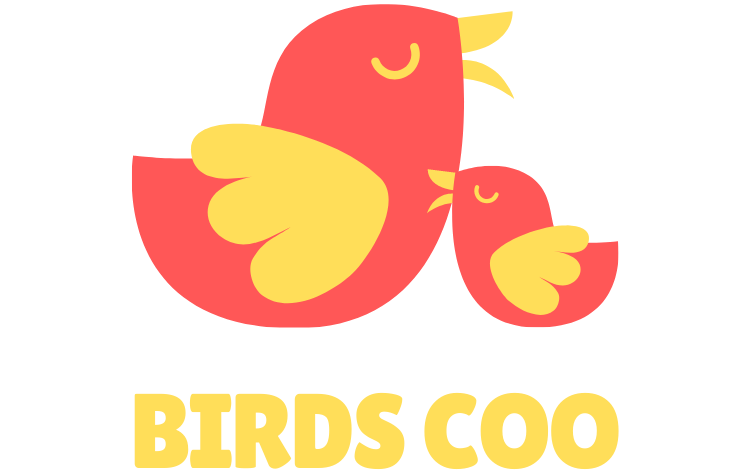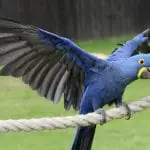Bird owners agree that malnutrition is considered as one of the most common problems reported to avian veterinarians. Even seasoned parrot owners have the tendency to feed their parrots with a diet that consists of mostly nuts and seeds. The reason could be that they do not know that this is not healthy, even contributing to plucking issues among parrots. Picky eaters and unhealthy parrots need vitamins for their feathers.
Body function and bird metabolism is quite complex and should be kept at a balance. They may be getting enough energy, but not the best nutrient quantities that they need in order to live healthily and grow healthy and beautiful feathers.
The following are important vitamins for parrots needed by birds to ensure a healthy life:
Vitamin A
Unfortunately, the most commonly deficient vitamin in the diet of a pet bird is vitamin A. It is often undiagnosed and overlooked. This problem is common among birds who only feed on seeds and nuts. Vitamin A is a vitamin that is fat-soluble and is the one that is responsible for development and growth, immune system response, hormone production, as well as the formation of mucous, vascular and epithelial membranes.
Vitamin A is also responsible for having good vision, as well as the yellow and red pigmentation that is loved by most parrot owners. The best way to feed your bird with Vitamin A is through bird supplements. Among the best ones is beta-carotene, which can easily be stored by the bird and converted into Vitamin A as required.
You can also increase the intake of fruits, as well as other foods that are rich in Vitamin A as well as its precursor. This includes spinach, carrots, egg yolks, broccoli leaves, papaya, cantaloupe, sweet potato, and collards.
A deficiency in Vitamin A will lead to illnesses that show some symptoms, which include sneezing, crusty nostrils, wheezing breathing, slimy mouths, diarrhea, restlessness, dull feathers, loss of appetite, lethargy and gagging sounds.
Vitamin D
Typically, Vitamin D is processed due to the exposure to any UV sunlight content. However, most of the time, captive birds are kept indoors, thus resulting in Vitamin D deficiency. Some parrot owners thought that exposing their pet parrots to the sunlight will solve the problem, placing their birds next to the window. The reality, however, is that this is incorrect since windows are designed to block UV light. Even when the windows are open, the amount of passing sunlight is too little.
Vitamin D is essential for parrots as it helps them in properly absorbing all nutrients that are found in their diet and into their bodies. These dual processes of nutrient absorption and bio-assimilation cannot happen without the presence of Vitamin D.
Vitamin D is also important for calcium absorption, which the birds need for bone formation, egg production, as well as the regulation of neurological activity. Also, the sunlight that helps in the production of Vitamin D is also essential in ensuring that the sleep cycles of birds remain regular. This only means that one reason why your parrot may refuse being silent at night is because of failing to produce Vitamin D interferes with its sleep patterns.
Calcium
More and more birds die each day because of calcium deficiency than other nutritional issues. The role of calcium in the body of birds is to provide the structure, especially with their beak and bones, feather structure, and connective tissues. Since the bones of parrots are denser compared with other bird species, they need more absorbable calcium.
Calcium also needs Magnesium and Vitamin D3 in order to synthesis properly. Aside from the fact that calcium is critical for essential body structures, it also plays an important role in terms of mood stabilization. Either too little or too much of calcium may result in your parrot experiencing high anxiety levels, which is a known cause for parrots plucking their feathers.
While it is true that dark leafy greens such as kale, spinach, and turnip greens come with a nice calcium load, most vegetable-based calcium form also comes with oxalic acid, as well as other oxalates in them. This is a huge problem since oxalates work in binding with calcium, thus preventing it from being utilized in the body. Feeding your bird with calcium supplements specially designed for avian friends is important in order to sustain the calcium levels in the bird’s body.
Protein
Parrots that eat a lot of seeds as part of their diet may get a good amount of protein, but often too much fat content may pose some harm to the overall health of birds. Obesity among parrots is often a huge concern. As such, it is potentially crippling, even lethal. Getting the appropriate amount of protein in a diet that is filled with fruits and vegetables can be challenging.
Protein deficiency can cause the bird to eat more food than what is required in an effort to obtain more protein. This results in an increase in the risk of obesity. Overloading your bird with fat and proteins can also result in a surge in hormones. This often results in the birds getting in the mood to mate, getting irritable, while presenting difficult behavior until the hormones eventually die down.
Protein also provides the needed calories, which are important in giving the bird energy needed in order to maintain their healthy activity level. On the other hand, low calories may cause the parrot to lose weight significantly, decreasing its everyday activities, which may impact mental stimulation severely. Without proper stimulation, your parrot will have the tendency to feel bored, and may even suffer from depression eventually.
Other Vitamins
Other vitamins are also categorized into fat and water-soluble vitamins. Fat-soluble vitamins are stored in the body fat of the bird, causing toxicity in high amounts. On the other hand, water-soluble vitamins are usually passed out in the urine. The following are some of the other important vitamins for your pet birds.
- Niacin – Niacin is the vitamin that is responsible for tissue formation and energy production. A deficiency in Niacin can result in neurological symptoms, as well as poor growth.
- Thiamin – Thiamin promotes transmission within the nervous system, while a deficiency may result in restlessness, shrieking, feather picking, and seizures.
- Pyridoxine – Pyridoxine fosters the utilization of amino acid, along with the formation of antibodies. A deficiency in this vitamin can cause immune dysfunction.
- Folic Acid – Folic acid stimulates the production of antibodies and amino acids, while its deficiency can cause immune disorders.
- B12 – This vitamin is vital for metabolic processes, as well as protein formation, carbohydrates, nucleic acid, and fat. A deficiency of this vitamin can lead to metabolic disruption and even death.

https://www.youtube.com/embed/nLvT3Nt3FTM
As pet owners, it is vital to understand that birds also need vitamins such as the ones mentioned above in order to live a healthy life. It might be best to consult a veterinarian on the ideal vitamins for your birds, as well as the quantity of food that is required for your specific pet. While all parrots are beautiful, they are not all the same, especially when it comes to food and other requirements.



